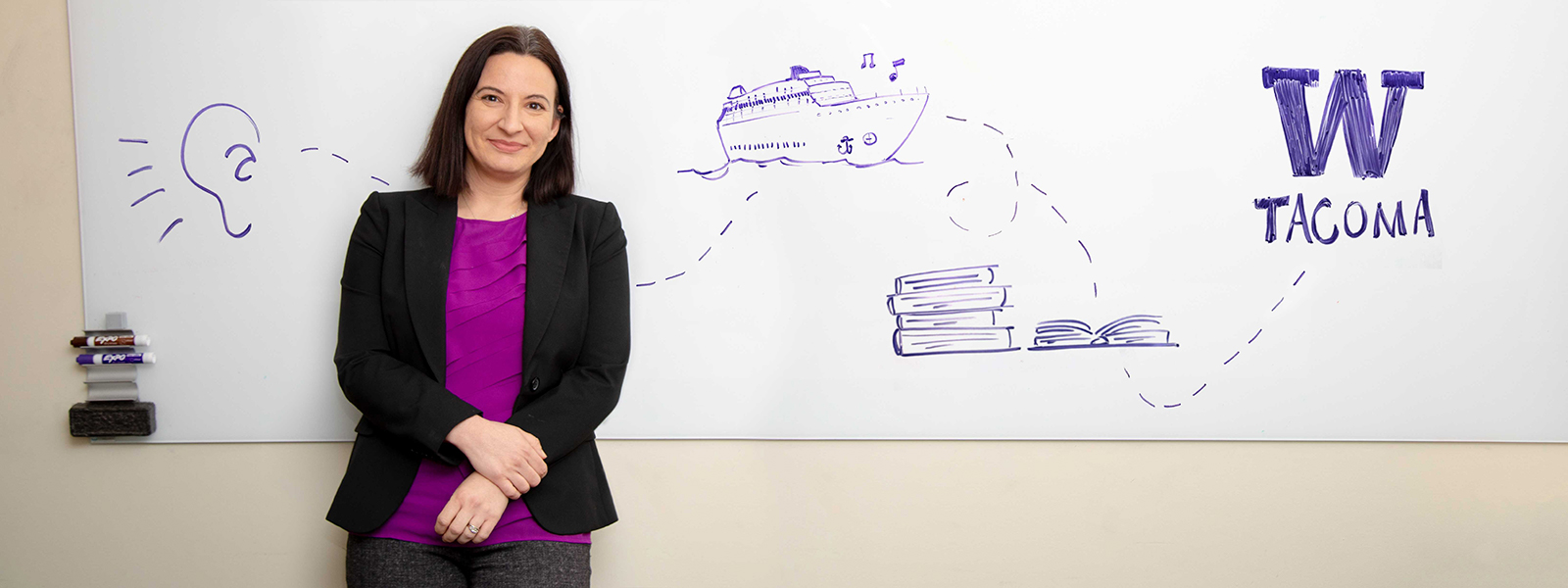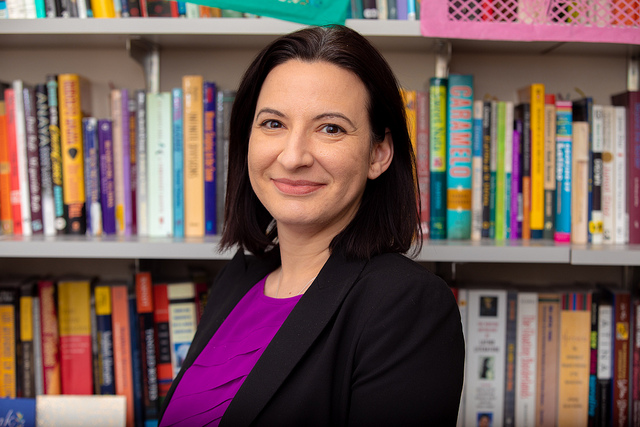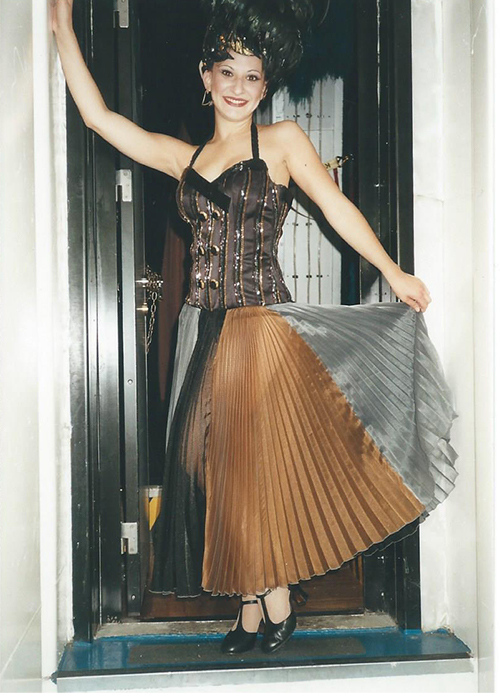
Found at Sea
A three-year stint aboard cruise ships set Associate Professor Vanessa de Veritch Woodside on a course to higher education.
Vanessa de Veritch Woodside needed to get away from academia for a while. This was almost 20 years ago. De Veritch Woodside is now an associate professor at UW Tacoma but at the time she didn’t know what direction her life would take. “The original plan was that I would become a bilingual speech-language pathologist,” she said. “I thought I’d spend my career working with bilingual kids, some of whom had been miscategorized as having language deficiencies.”
By that point de Veritch Woodside had completed a bachelor’s in Spanish and was in a Ph.D. program that combined neuroscience and cognitive linguistics. “I was about halfway through the program when I decided I wanted to explore something else,” she said. “I loved Spanish and linguistics but wasn’t sure of the possibilities.”

De Veritch Woodside took a leave of absence from her Ph.D. work (she later left the program entirely in pursuit of other academic opportunities). “I needed to get as far away from academia as I could,” she said. “I was terrified at the thought of deviating from the practical professional path I had set out upon and didn’t want to feel like I was throwing away a wonderful opportunity, but I realized I might not always have the chance to pursue my passions,” she said.
A little context is important. De Veritch Woodside took up dancing at the age of three. She also had a friend who’d worked as a dancer onboard cruise ships. “Long story short, I ended up working for Holland America for what was supposed to be one six-month contract,” said de Veritch Woodside.
Six months of performing in Broadway-style shows turned into three years. De Veritch Woodside may have been at sea but she wasn’t adrift. Between performances de Veritch Woodside immersed herself in books, mostly Latin American and Latinx literature. She also used the opportunity to explore Latin America. “I got a chance to hone my Spanish skills by communicating with locals and I became much more familiar with the cultures and histories of Mexico, Costa Rica, Nicaragua, Guatemala and Colombia,” said de Veritch Woodside.
De Veritch Woodside eventually decided she wanted to return to school, this time to pursue another true passion, literature and its use within the context of social justice. She and her husband — a sound engineer for Holland America — traded the endless ocean blue for the desert heat of Albuquerque, New Mexico. De Veritch Woodside earned a master’s in Spanish/Hispanic literature and a Ph.D. in Spanish and Portuguese from the University of New Mexico.
De Veritch Woodside finished her Ph.D. in the spring of 2012 and came to UW Tacoma later that fall. She teaches all levels of Spanish language courses as well as courses in Latin American and Latinx literature along with cultural studies in both Spanish and English. While the subject material differs, de Veritch Woodside has the same goal for students in each of her classes. “I want students to interrogate notions that they have assumed were standard,” she said. “Ultimately, I want them to question what has framed their own experiences and understand what the experiences of others might be and why.”
For some Spanish language courses, de Veritch Woodside works with a colleague in Mexico who teaches English to native Spanish speakers. “The two classes interact regularly,” said de Veritch Woodside. “We created a closed Facebook group where they respond to different prompts that are designed to get them talking.” Students are required to use their non-native language in their posts and video chats. “It’s humbling for students, but it also gets them to see beyond stereotypes,” said de Veritch Woodside.

In the other courses she teaches, de Veritch Woodside uses literature to break down walls between cultures. “Literature can be an effective way to open up a conversation about history that’s not generally taught in K-12 curriculum or even on college campuses,” she said. “I use the material to provide students with a broader context with the hope that it encourages them to learn more.”
De Veritch Woodside is active both on campus and in the greater Tacoma community. She serves on the board of AIDNW. The organization advocates for immigrants housed at the Northwest Detention Center and connects them to vital resources. De Veritch Woodside and Assistant Professor Rachel Hershberg are working on a project to document the impact of detention on immigrants and refugees in the South Sound.
The research involves interviewing people who at some point didn’t have legal status. “We’re in the process of analyzing the information and plan to share it with our community partners,” said de Veritch Woodside. “We’re looking to both improve services for these communities while helping Tacoma become the welcoming city that it wants to be.”
The granddaughter of Slavic, Russian Jewish and Norwegian immigrants, de Veritch Woodside wants to make sure she’s speaking up for others. “I’m also trying to be mindful of my role,” she said. “I never want to position myself in a way that I am the voice for these communities. From the books I choose to use in class to my research, I want to be a conduit by which typically marginalized voices tell their stories in their words.”
De Veritch Woodside didn’t end up working as a bilingual speech pathologist but she’s still interested in other peoples’ voices.



